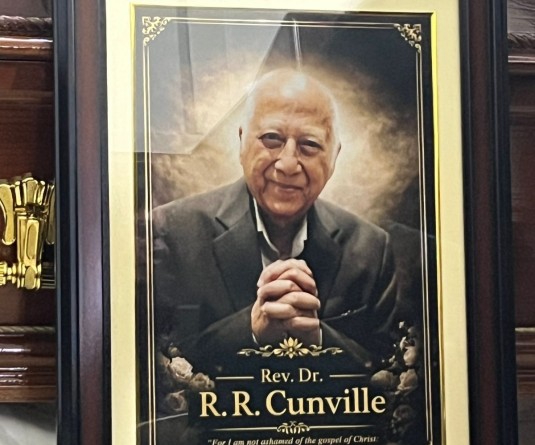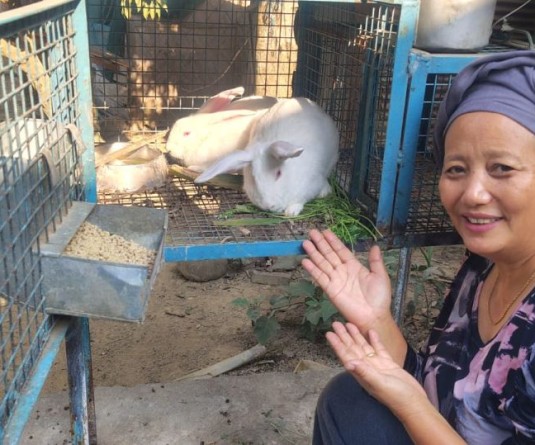
Letlal Haokip
Delhi
As India continues to urbanise and integrate into a global economy, young people from the Northeast are increasingly migrating to cities in search of education, employment, and safety. While this trend reflects aspiration and ambition, it also reveals deep-rooted issues both back home and in city life that challenge the purpose and success of this diaspora, particularly among Christian youth of Northeast India.
Why do they leave the Comfort Home: Root causes of migration
Northeast India remains one of the most underdeveloped regions in the country. Poor infrastructure, limited quality educational institutions, and widespread corruption have pushed many parents to send their children to cities. In several states, government jobs are allegedly sold through bribes, making it difficult for deserving candidates from poor or humble backgrounds to succeed. Not only that, but many parents who are against corruption and bribery don’t want their children's jobs to be bought from corrupt politicians and bureaucrats.
Many parents, despite their financial struggles, choose to send their children outside the region, hoping they will receive a better education and secure employment by their own merit and hard work and be an example for coming generations. Insurgency and safety concerns in some areas further motivate this migration. For others, it’s the growing drug problem in local communities that prompts parents to send their children away, sometimes as a form of silent rehabilitation. Increasing opportunities in the private sector, especially in cities, have also drawn a large number of Northeast youth into urban workplaces, beyond traditional government jobs. Some have thrived. Young entrepreneurs from the Northeast are now running successful businesses in hospitality, food, handicrafts, and student hostels across Indian cities. But not all stories end in success.
Struggles in the City: When Dreams Fade
For many students, the transition from village life to a bustling city is overwhelming. They struggle with freedom, loneliness, and a lack of proper guidance and a mentor. Without the structure of home, and with no one to keep them accountable, some lose sight of the very reason they came. To reduce expenses, students often share rooms. While some find supportive roommates, others fall into peer pressure, leading to unhealthy relationships, late-night partying, or even cohabitation before marriage, which can distract from their academic goals. Many struggle to assimilate into other cultures, especially foods and local life.
• Tribe Student Organisation: Tribal student organisations and churches, originally founded to support and encourage students, have sometimes shifted from their core purpose. Instead of focusing on mentorship and spiritual guidance, many have become busy with political networking, organising social events, or building personal influence. Some students spend more time raising funds for events than attending their classes. In short, they become busy for nothing.
• Tribe Church: Churches in the cities also face challenges. Instead of adapting to the urban and cultural and lifestyle of the city church context, many replicate the extensive programs of their home states, weekly prayer cells, multiple fellowships, house visits, and numerous “Special Sundays.” While spiritually well intentioned, these activities often consume time, energy and money that students need for their studies. They are in metro city not for mission work but for building their own career for future purposes.
• Games and Sports: Moreover, sports, especially football and badminton, though healthy in moderation, can become distractions. In some communities, students train daily, participate in tournaments, and organise inter-tribe competitions, sometimes more seriously than they take their education. This activity consumes most of the time and misses most of the classes, and falls into telling lies to parents and teachers due to missing the classes. The freedom of city life has led many students astray. Some lose themselves in nightlife, alcohol, or unhealthy relationships. When it is time to return home, they come back empty-handed—not with degrees or jobs but with disappointment. This shatters the hopes of parents who sacrificed everything, believing their children would return educated and empowered, and they arranged a “Thanksgiving Program” in honour of excelling in studies and securing a government job with the community.
A Time for Introspection: Individual, Community, Church, and Change
There is no instant solution to this complex issue. But meaningful change begins with honest introspection by individuals, mentors, elders, families, student bodies, and church communities. We must ask: Are our community churches in cities truly supporting students, or overburdening them? Are our student organisations staying true to their founding mission, or becoming platforms for politics and performance? Are we guiding our youth spiritually and morally or just keeping them busy?
Churches must consider streamlining their programs in urban areas. Not every fellowship, celebration, or committee is essential. Students need spiritual support, not social overload. A few focused programs, such as Sunday services, small group Bible studies, and mentoring, can be more impactful than a calendar packed with events.
Student organisations must also evaluate their priorities. Helping a fellow student in medical need is admirable, but why are students always asked to donate blood when well-off patients come for treatment? Events like freshers’ meets are important, but overactivity can drain students of the very purpose for which they came to the city to study.
At the heart of the solution is purpose. Every student who comes to the city must be reminded of their purpose or goal: education, physical and spiritual growth, and life transformation. Elders and leaders must walk alongside them with prayer, wisdom, understanding and motivating and encouraging them. Mentor and Church must also talk openly about the consequences of certain lifestyle choices, living together, excessive partying, unhealthy relationships, not with judgment, but with love, compassion and clarity.
Results of Joyfully journeying together with God the Father.
Not all is lost. Many young people from the Northeast who keep meditating on the Words of God, and always focusing and reminding himslef/herslef the reason they are in the city, are thriving in cities, graduating with honours, working in respected government offices and different government and private universities and companies, starting businesses, or even giving back to their communities.
Let us build a system that supports these success stories. Let us equip our youth to stay focused, live with integrity and accountability, and return home with more than just a certificate, but with a testimony of resilience, faith, and purpose. If we reflect, reform, and respond together, we can turn the Northeast Christian diaspora into a powerful force for good, both in the cities and back home and for building the nation and for the expansion of God’s Kingdom. With God, all things are possible. Amen!





